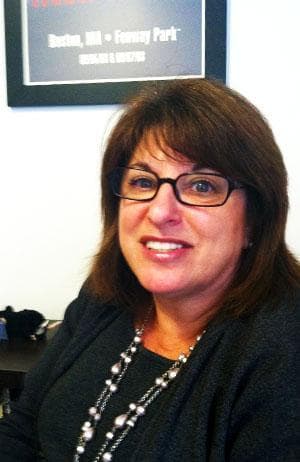Advertisement
Can You Hear Me Now? Why Isn't My Hearing Aid Covered?

By Ellen Berlin
Guest Contributor
I took the hearing test on a whim at a health fair, pretty confident that as a healthy 35-year-old, I would pass with flying colors. Not so. I failed, miserably. I was so stunned at the results that I asked to take the test again. I thought that if I tried a little harder, I could pass. I failed again.
There are 35 million people who are hard of hearing, and I, apparently, am one of them. Still, the news was tough to hear.
Shortly after the failed tests, I went to a follow-up meeting with an otolaryngologist with much apprehension. Maybe this was a temporary condition or better yet, maybe the test results were a mistake. Not so. The doctor explained where I was on a hearing spectrum — not in a good place — and to my shock, was recommending hearing aids...two! He was sure that I had been overcompensating for my hearing loss and that the hearing aids would offer me untold benefits.
I wasn't so sure. To start, I thought I was fine. After a lengthy discussion I conceded that maybe I had a small problem. I started to think about the possibility of getting a hearing aid but it was tough, very tough, to think beyond the cost — approximately $1700 each. Like me, most people are surprised to learn that hearing aids are not routinely covered under most private insurance plans or traditional Medicare.
(Things have improved slightly in recent years, according to Kaiser Health News: "In a national survey of people who bought hearing aids in 2008, nearly 40 percent said their health insurance paid some portion of the cost, up a few points from four years earlier..." But even when coverage exists, KHN notes, it's "generally pretty skimpy.)
NPR reported this week that Congress is considering a $500 tax credit for the purchase of hearing aids. This news gives hope for some needed action.
Lucky for me, my doctor was exceedingly patient and persuasive. We agreed that I would try one for 30 days — though I still wasn't convinced. I didn’t have to pay for the trial and could simply return the hearing aid after 30 days. I figured I didn’t have much to lose.
I quickly realized that the doctor was right. I was amazed at what I had been missing. So, I swallowed my pride, tightened my budget and scrounged up the money to purchase my first hearing aid. About 8 months later, I bought a second hearing aid. It was like a whole new world had opened up for me.
I can now hear people in meetings that I couldn’t previously hear and I hear better on the telephone.
And here's a funny story: When I first got the hearing aid, I heard one of my colleagues singing to herself. I said to another colleague: "She is singing today. She must be happy about something." My colleague replied, “She sings every day. You just never heard it before!!”
Hearing aids are not perfect. There are still many places and situations that are very difficult, but I am usually able to get by or compensate. Hearing aid technology is continuously improving, so who knows what is on the horizon?
There were no obvious reasons for my hearing loss and to this day, I don't know the cause. But I do know that hearing aids are a lifeline. Without them, I am sure I would not been able to continue working and would likely have needed some type of government assistance.
It is deeply troubling that something so critical to overall health is not routinely covered by insurance. Why is this? Maybe it's because the hard of hearing community doesn't have a strong voice or a powerful lobby? Maybe we don't want to raise our voices because of the stigma that comes with our condition?
Now, we are starting to whisper. This Congressional action is a start. But, as those of us with hearing loss know, whispers are not often heard. We need to start shouting.
Ellen Berlin is a public relations executive in Boston.
This program aired on April 24, 2012. The audio for this program is not available.
